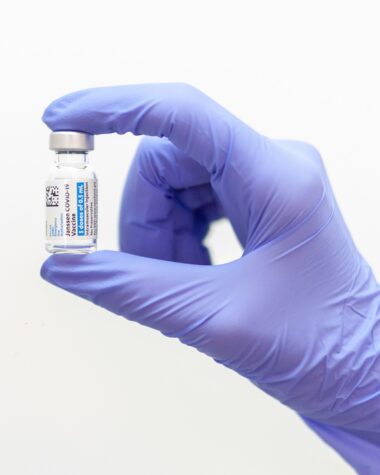Molina Healthcare, Inc. (NYSE:MOH) is a Fortune 500 managed care company founded in 1980 by Dr. C. David Molina, an emergency room physician in Long Beach, California. Established with the mission of delivering affordable, quality healthcare to low-income families and individuals, the company has grown into one of the largest providers of Medicaid and Medicare services in the United States. Over the decades, Molina has built its reputation around serving populations that often face barriers to care, focusing particularly on those who qualify for government-sponsored health programs.
The company’s origins were rooted in a community health clinic established by Dr. Molina to provide services to underserved populations who struggled to navigate the healthcare system. This commitment to addressing inequities in care became the foundation of Molina Healthcare’s business model. From its early beginnings as a local clinic, the organization expanded rapidly, eventually transforming into a multi-state health plan operator and healthcare services provider. Today, Molina serves millions of members across Medicaid, Medicare, and Affordable Care Act (ACA) marketplace plans, providing managed care services in multiple states.
Molina Healthcare’s growth has been fueled by its ability to secure and manage contracts with state governments to administer Medicaid programs. This has made it a critical partner in providing healthcare for low-income populations, children, seniors, and individuals with disabilities. The company’s core business remains heavily tied to Medicaid, but it has also expanded into Medicare Advantage and marketplace plans to diversify its offerings. With its focus on integrated care models, Molina has sought to not only manage costs but also improve patient outcomes through coordinated services and preventative care programs.
The organization’s headquarters are located in Long Beach, California, and it operates in more than a dozen states, with a presence that has steadily grown through both organic expansion and acquisitions. Molina has acquired regional health plans in markets where Medicaid and Medicare populations are significant, strengthening its position as one of the top managed care organizations in the country. As healthcare policy and regulation continue to evolve, Molina has maintained its role as a key player in delivering services to some of the most vulnerable populations in the healthcare system.
Molina Healthcare’s mission is rooted in its founding principles: to deliver cost-effective, quality healthcare solutions to families and individuals who need it most. While the company has faced challenges over the years, including shifts in government policy, competitive pressures, and rising medical costs, it remains committed to expanding access and reducing disparities in care. Its history as a company born out of compassion and necessity continues to shape its strategy as it adapts to a changing healthcare landscape in the United States.

CHECK THIS OUT: Exact Sciences (EXAS) Just Made Cancer Detection 100x Easier! and Soleno Therapeutics (SLNO): The Biotech Company That Could Make You Rich.
Government Program Dependence and Policy Risk
The company’s revenue mix is overwhelmingly concentrated in Medicaid and other state-administered programs. While these contracts provide a steady flow of patients, they also tie Molina’s fate to state budgets, federal funding levels, and political shifts. Ongoing Medicaid redeterminations following the end of pandemic-era protections are already reducing membership levels, which puts additional pressure on revenues. Eligibility audits and policy reforms aimed at curbing spending may exacerbate this downward trend. Unlike private insurers that have a more diversified mix of commercial plans, Molina’s exposure is narrow, leaving it vulnerable to regulatory or budgetary decisions outside of its control.
The Illinois Vaccine Initiative: A Double-Edged Sword
Molina Healthcare of Illinois recently partnered with the Prism Foundation to launch the statewide “Ready by 10/15” back-to-school health records check hotline and mobile clinics. The initiative, funded through a $250,000 grant from Molina and supported by The MolinaCares Accord, aims to help families meet the October 15 school deadline for immunizations and physicals. While the program demonstrates Molina’s community outreach and goodwill, it also underscores a larger challenge: the company is increasingly leaning on community health campaigns to improve its reputation amid rising scrutiny of care delivery and prior authorization practices.
The program highlights important public health goals, such as closing the measles vaccination gap and reaching the 95% protection threshold. Yet from an investor’s perspective, it reflects Molina’s need to defend its positioning in Medicaid-heavy markets like Illinois, where disenrollment and utilization swings could hit membership and margins. These outreach efforts, while valuable for public relations, may not be enough to offset the structural headwinds in Molina’s business model.
Reputation Risks and Regulatory Oversight
Molina has faced criticism in several states for high denial rates and inadequate member services. Reports of Medicaid patients experiencing difficulties in accessing care have attracted regulatory scrutiny, and such issues can result in fines, contract non-renewals, or reputational damage. While initiatives like the Prism partnership are designed to counteract such concerns, they also serve as reminders that Molina’s brand image remains vulnerable. If the company is perceived as prioritizing margins over patient care, regulators may impose stricter oversight that could further complicate operations.
Financial Strain and Volatile Stock Performance
Despite efforts to present itself as a reliable partner to government agencies, Molina’s financial results show evidence of strain. Net income has been pressured by rising claims costs and operating expenses, and guidance cuts suggest that near-term improvement is unlikely. Investors have responded sharply, with Molina’s stock suffering steep losses after recent profit warnings. Year-to-date performance lags both the S&P 500 and healthcare sector averages, reinforcing concerns that Molina may no longer be a stable defensive play. Even as some analysts maintain price targets in the $300–$400 range, sentiment has cooled considerably, and volatility has become a defining feature of the stock.
Geographic and Operational Risks
Molina operates in numerous states, but it is particularly exposed in markets like California and Illinois. Operational disruptions—whether from natural disasters in California or policy changes in Illinois—pose outsized risks. The Illinois vaccine initiative illustrates how Molina must remain heavily engaged at the local level, but such engagements require sustained spending without guaranteeing measurable financial returns. Meanwhile, investment portfolio risks linked to interest rate changes and credit market shifts add another layer of vulnerability to the company’s balance sheet.
Conclusion: A Fragile Path Forward
Molina Healthcare’s mission to improve care for underserved populations is laudable, but the company’s business model faces structural challenges that threaten its long-term stability. Rising medical costs, deep dependence on government programs, reputation risks, and mounting regulatory scrutiny create a fragile environment. Even high-visibility community initiatives like Illinois’ “Ready by 10/15” vaccination partnership, while valuable for public health, cannot mask the broader financial and operational pressures weighing on the company.
For investors, the bearish case rests on the likelihood that these headwinds will persist, eroding margins and limiting upside potential. Unless Molina can diversify its revenue mix, demonstrate consistent profitability, and reduce dependence on politically sensitive government programs, it may remain stuck in a cycle of volatility and underperformance despite its noble mission.
READ ALSO: Johnson & Johnson (JNJ) can be the Next Trillion-Dollar Stock and Boston Scientific (BSX) Just Signed a $45M Deal—Here’s What It Means for Investors.








